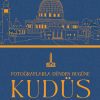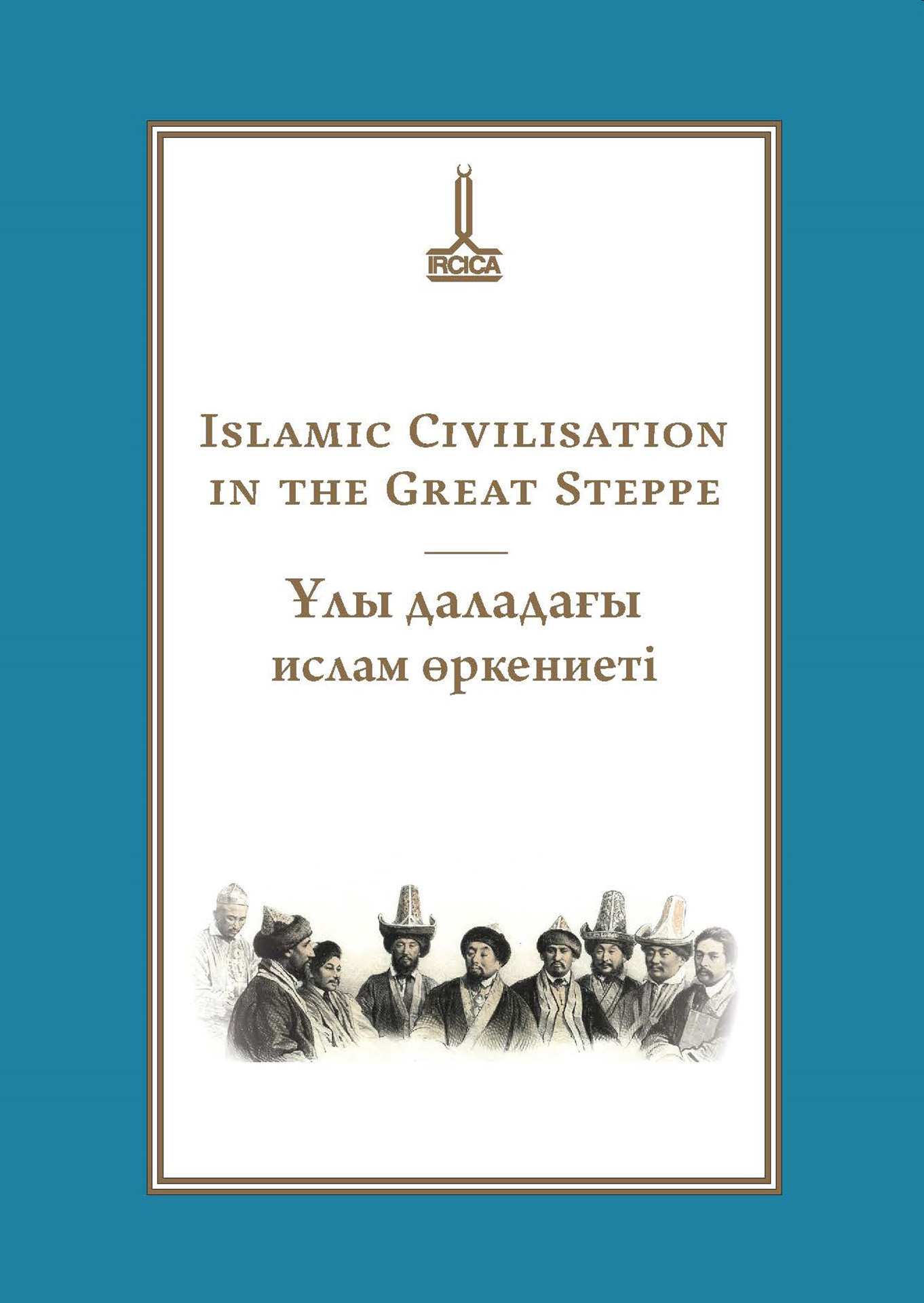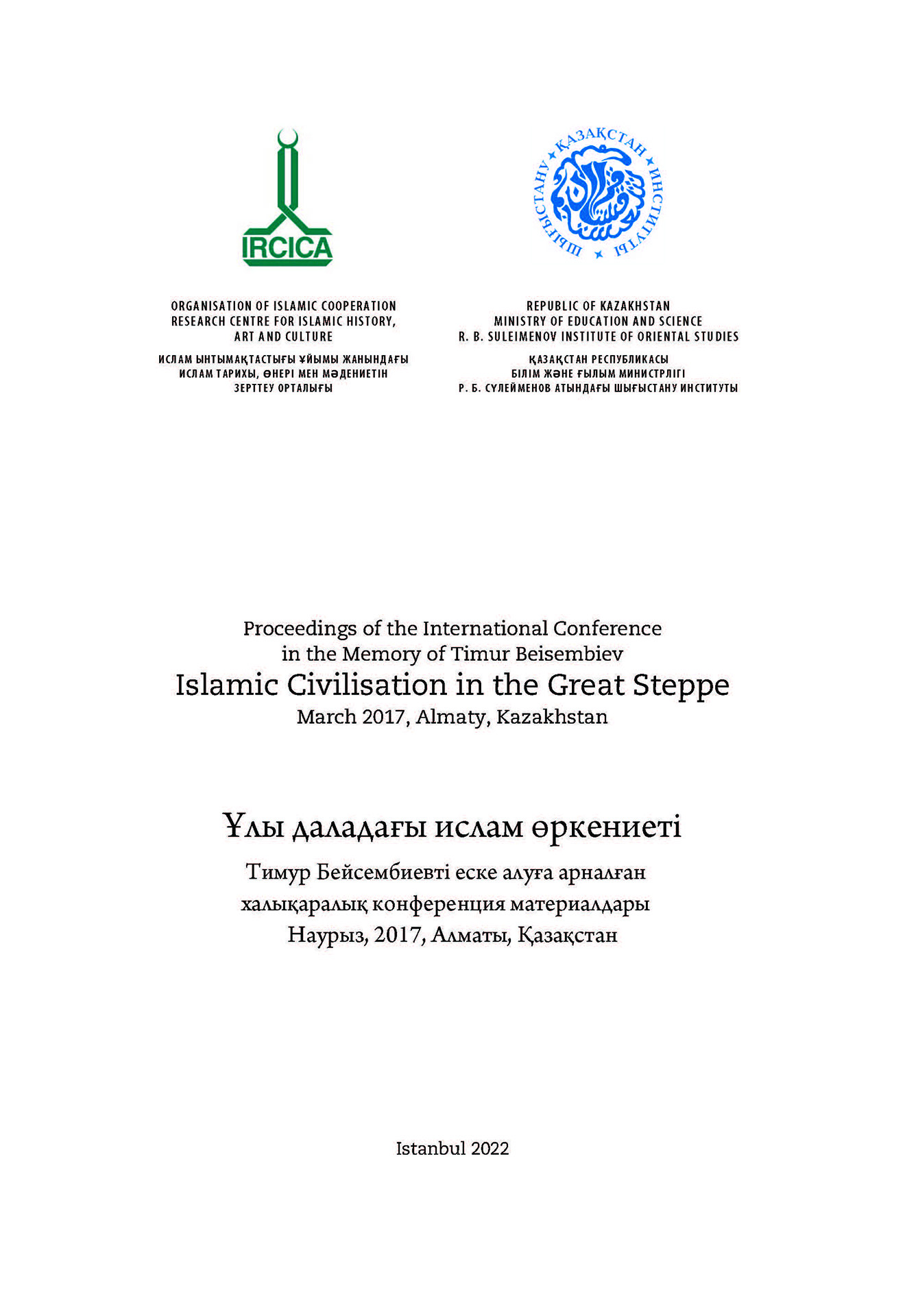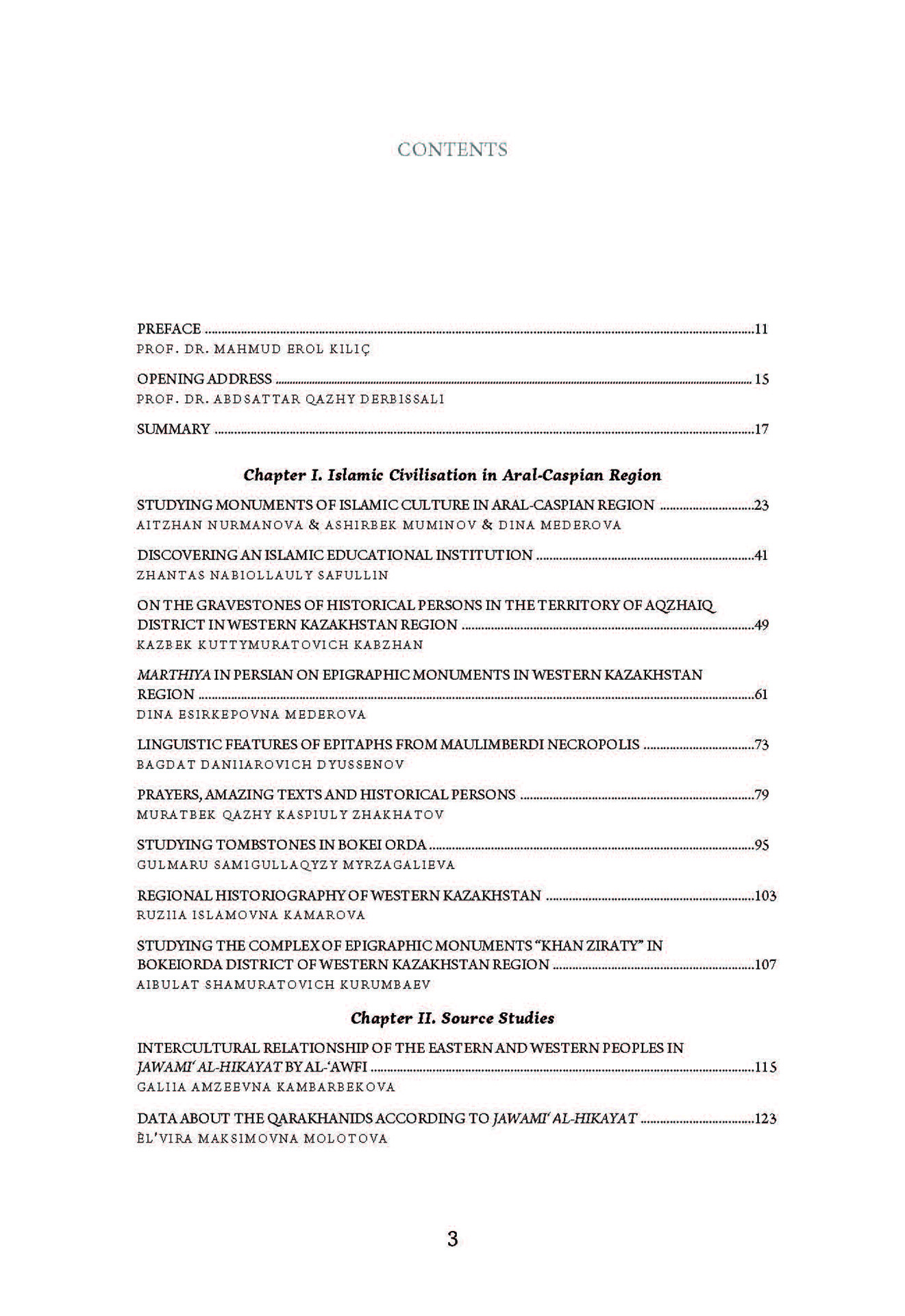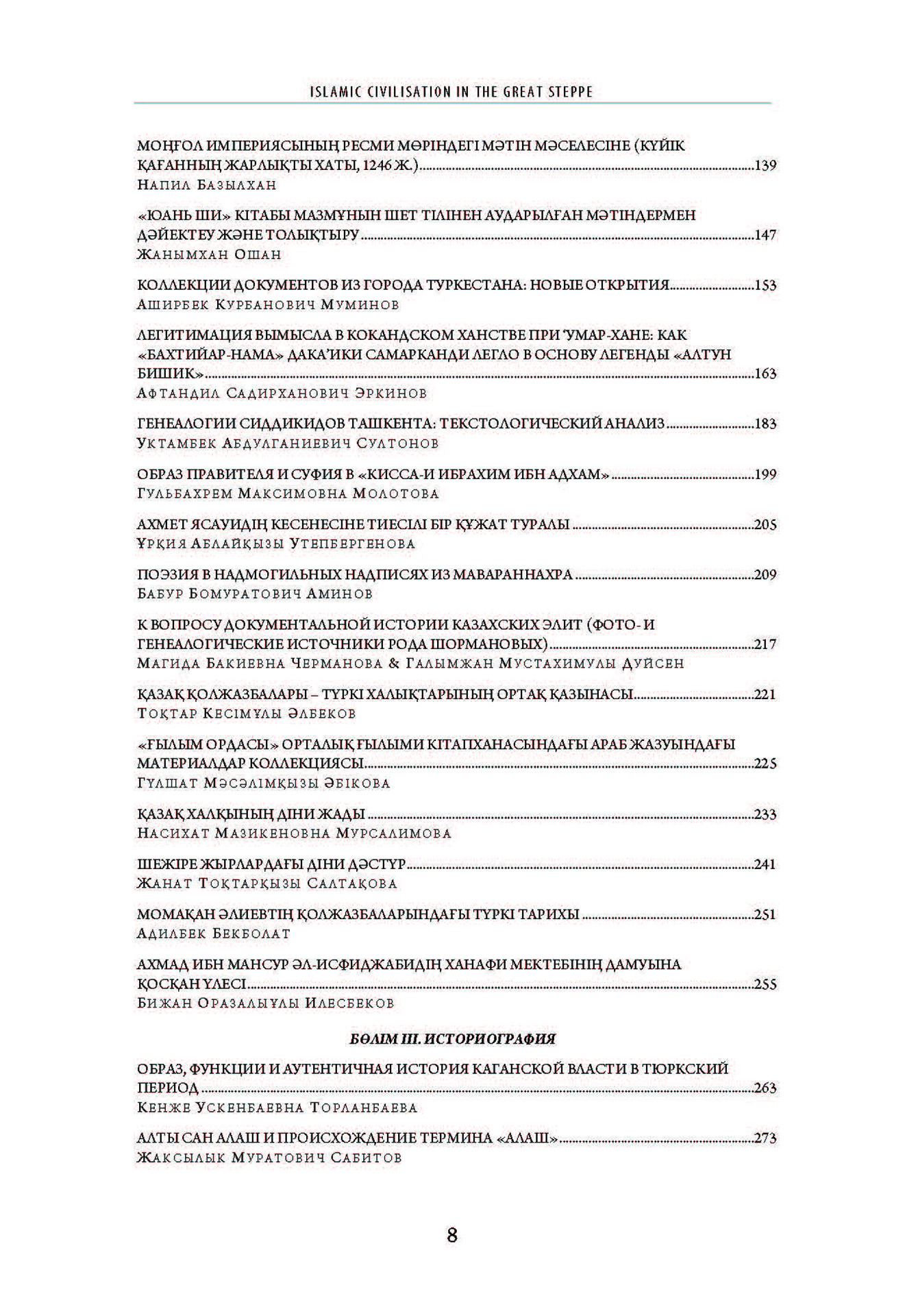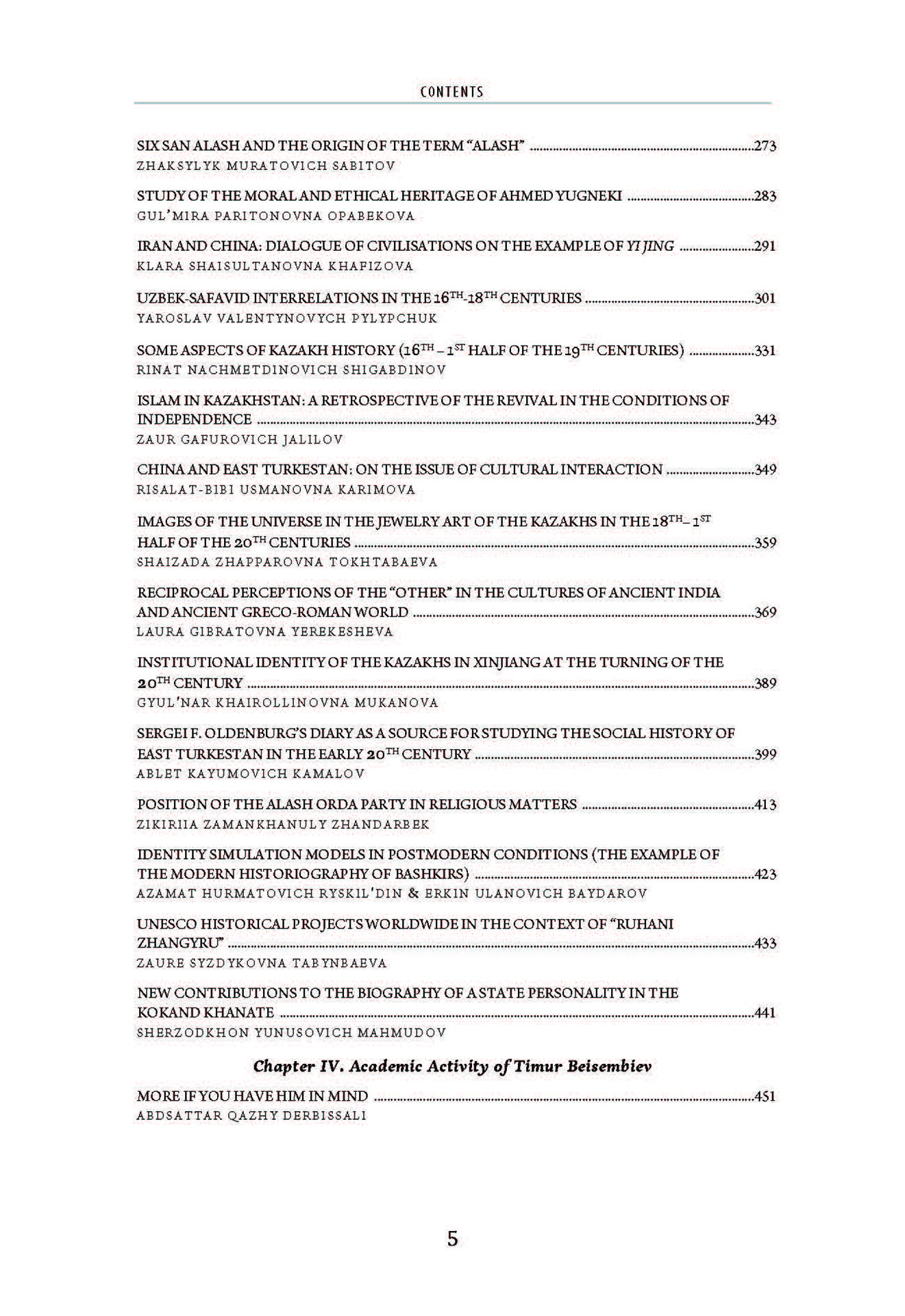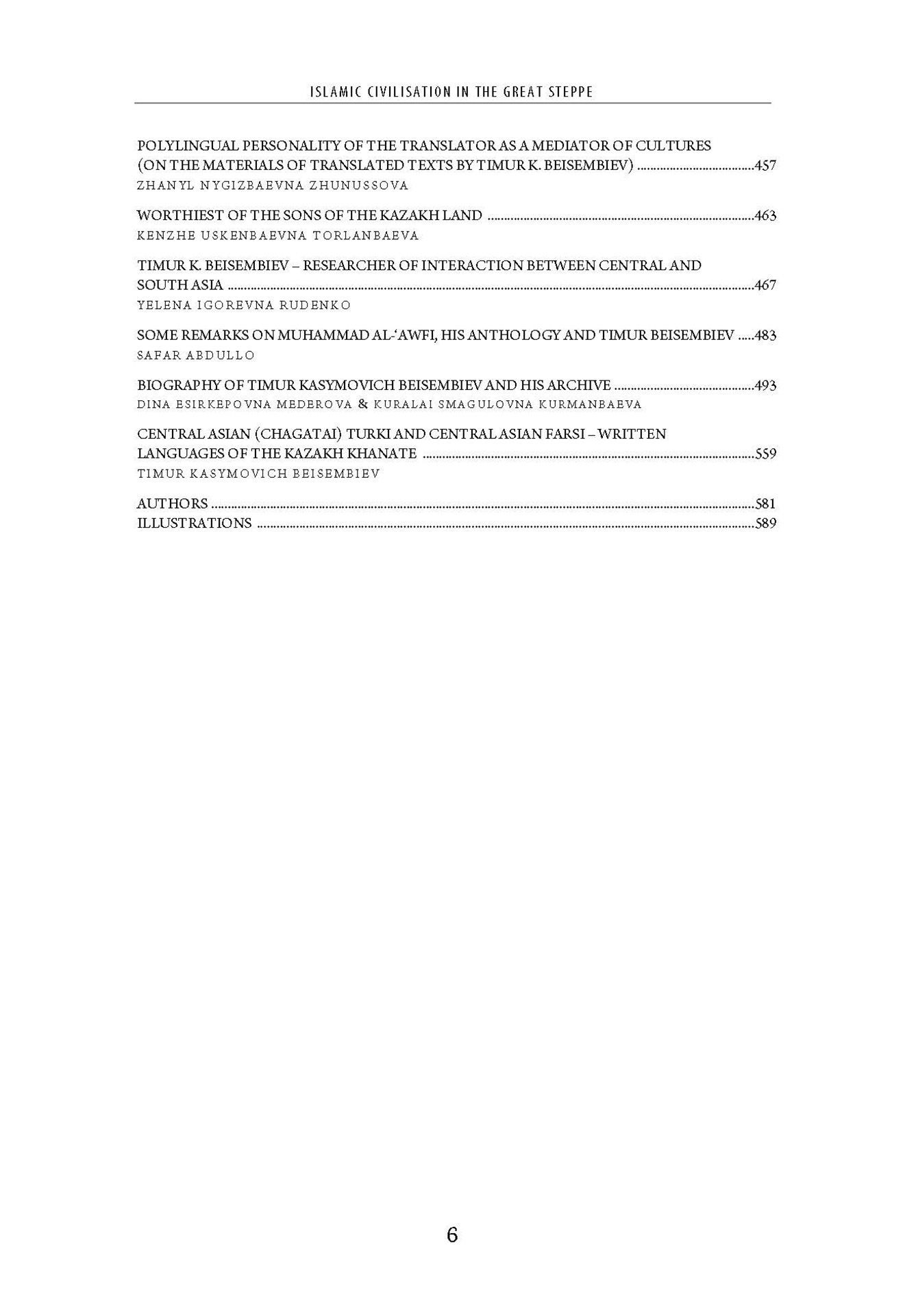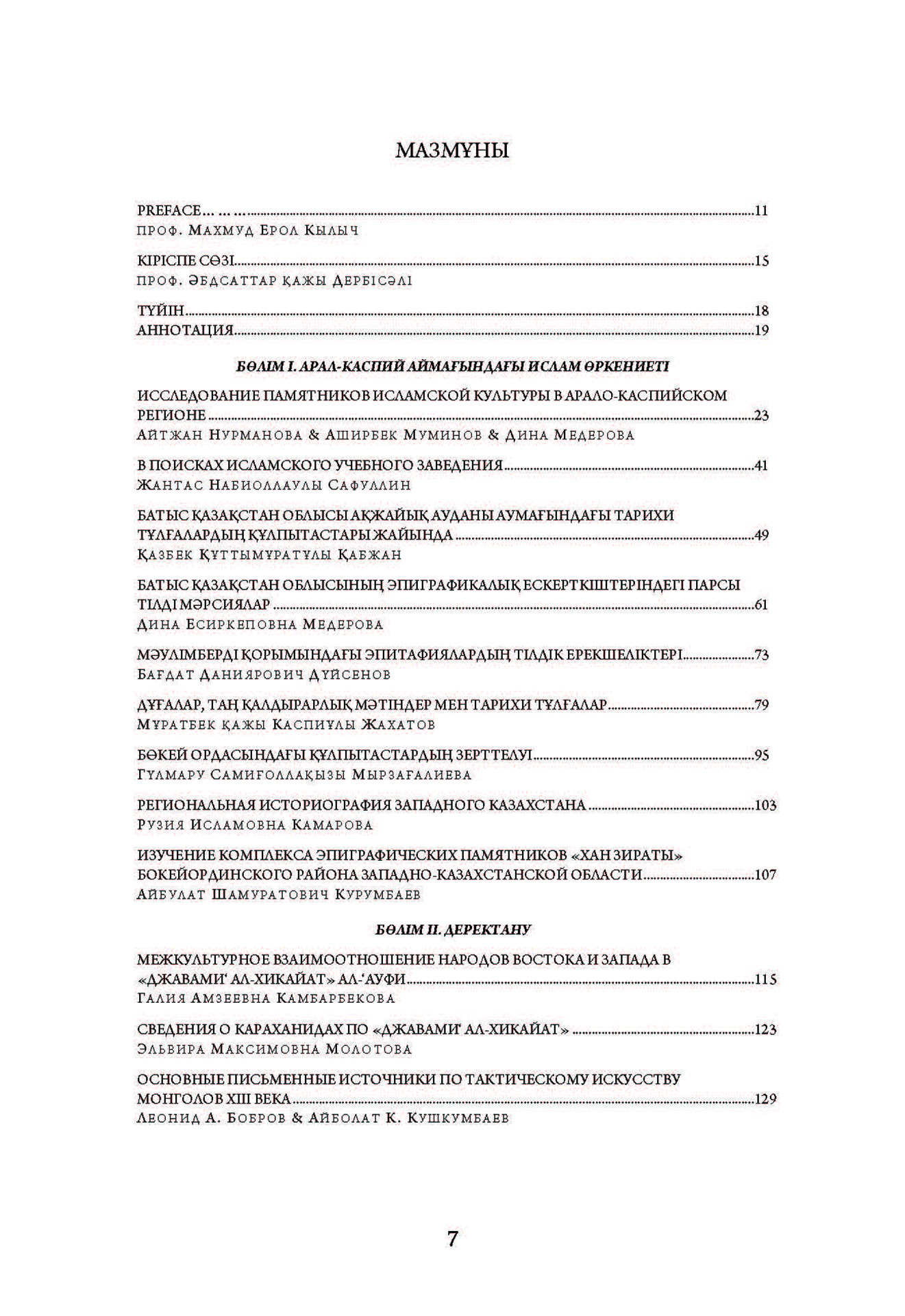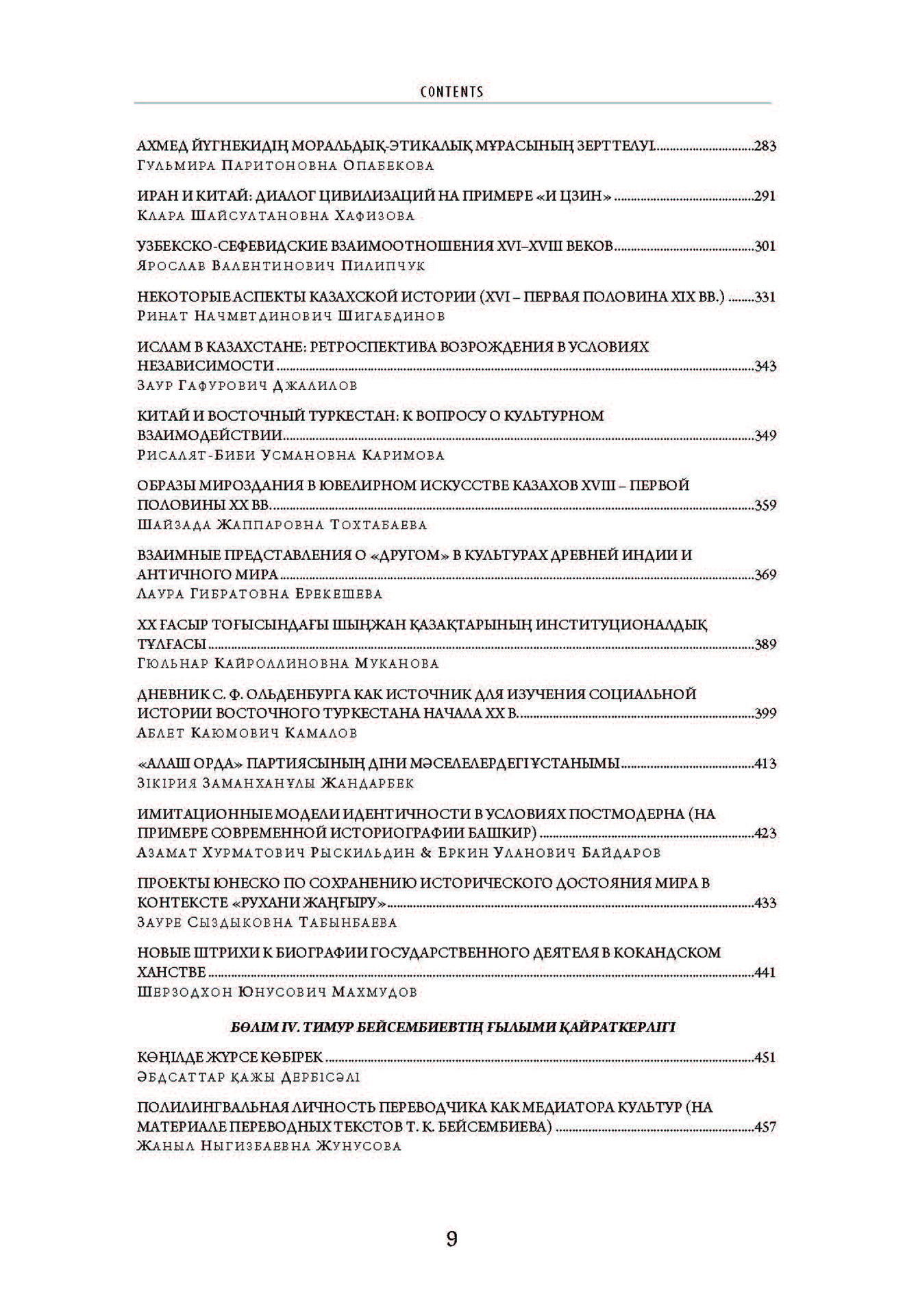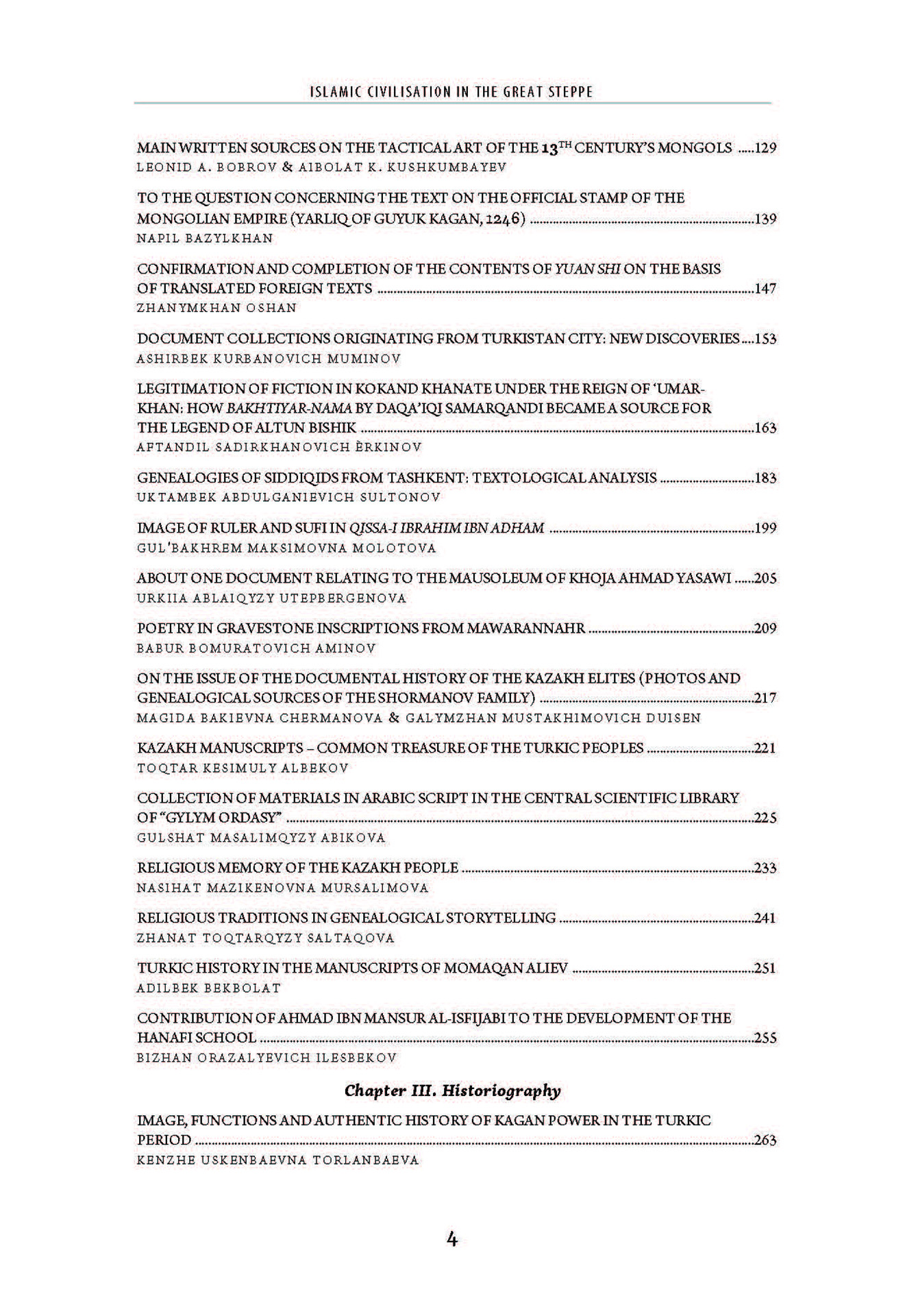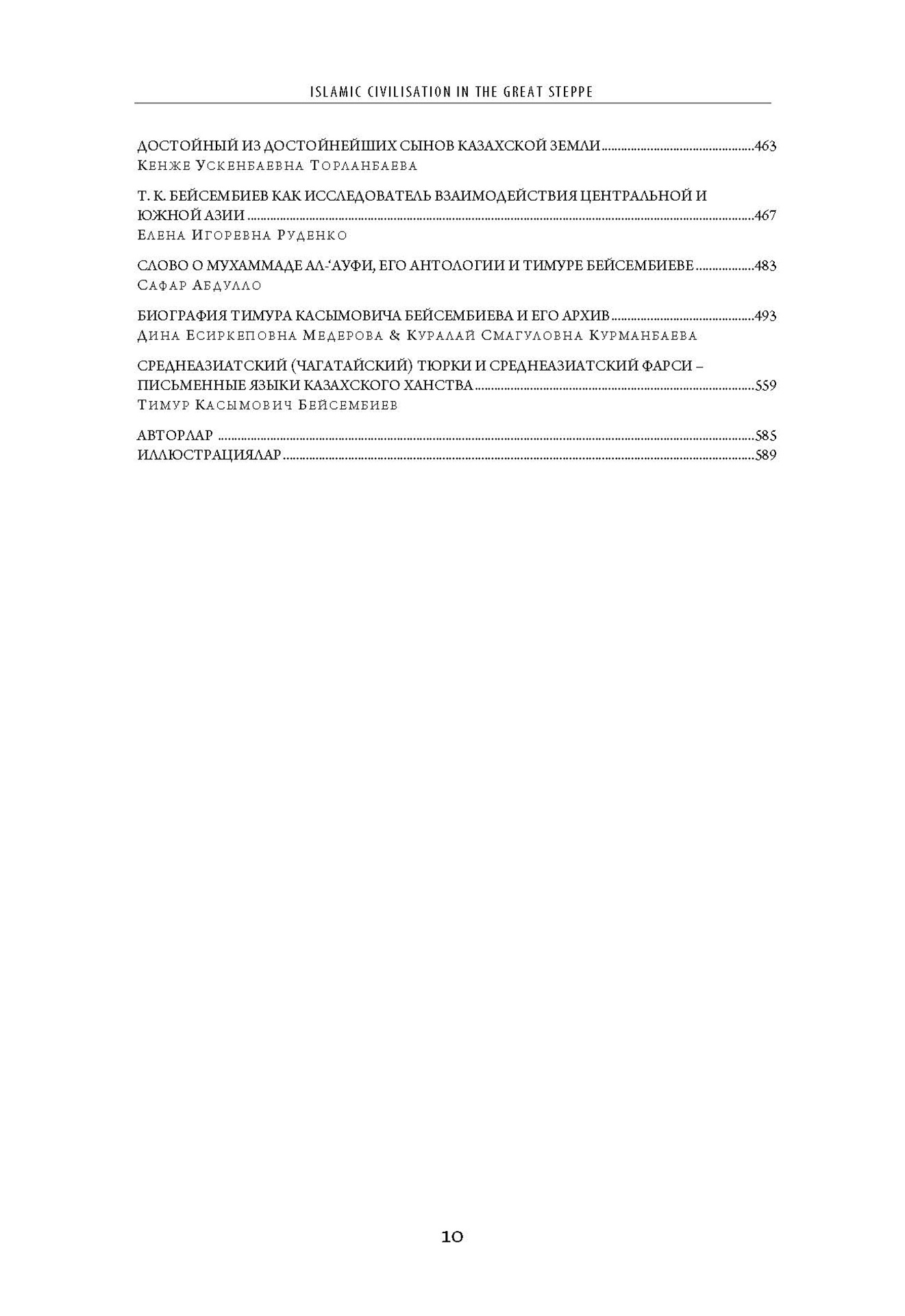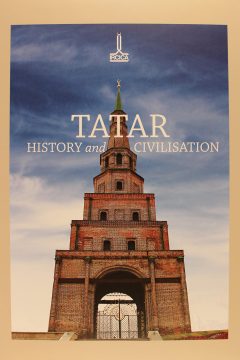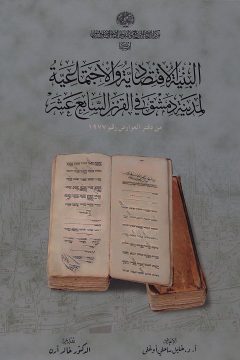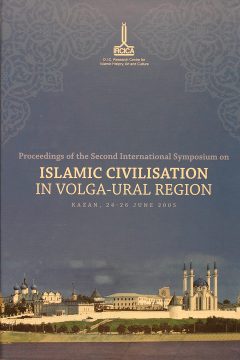This book contains 50 scientific articles based on the materials of the international conference on “Islamic Civilisation in the Great Steppe. Scientific Readings Dedicated to the Memory of Outstanding Kazakh Scholar in Oriental Studies Dr. Timur Kasymovich Beisembiev (1955-2016)” which was organized by IRCICA in cooperation with R. B. Suleimenov Institute of Oriental Studies of the Ministry of Education and Science of the Republic of Kazakhstan and held in Almaty, on 30 March 2017. The book begins with the Preface of IRCICA Director General Prof. Dr. Mahmud Erol Kılıç and the text of the opening address which was delivered at the conference by Prof. Dr. Abdsattar Qazhy Derbissali (1947-2021), then Director of R.B. Suleimenov Institute of Oriental Studies (a scholar in Islamic history and Supreme Mufti in Kazakhstan from 2000-2013).
The first chapter, titled “Islamic Civilisation in Aral-Caspian Region” includes articles by leading researchers of Kazakhstan about the Islamic monuments of the region. The main focus is on the identification, registration, and primary study of the monuments where inscriptions in Arabic script are concentrated. The studies have helped to identify about 400 memorial and cult complexes. They appraise the state of studies and preservation regarding the monuments and suggest further tasks for the in-depth study, preservation and preparation of future publications on these monuments.
The second chapter, titled “Islamic Studies”, bring together articles that look into the recently discovered written sources on the history of Islamic civilisation in the Great Steppe. Their findings are of interest for research in the fields of history, archeology, sphragistics, diplomacy, folklore, and manuscript heritage.
The third chapter contains articles on a variety of “Historiography” topics about Kazakhstan and Central Asia. Many of them were studied by the famous Kazakh scholar Timur Kasymovich Beisembiev. The fourth chapter, titled “Academic Activity of Timur Beisembiev”, contains six articles highlighting his academic contributions from various viewpoints. Another article records his biography and a description of his archive, which is the outcome of a whole life devoted to collecting, classifying and studying written sources on the history and culture of Islamic civilisation in the Great Steppe, particularly on Kokand historiography. The last article presented in the book belongs to Beisembiev T.K., “Central Asian (Chaghataï) Turki and Central Asian Farsi – Written Languages of the Kazakh Khanate”.
Beisembiev was an important scholar in Oriental Studies and on the history of Central Asia and its sources, well-known particularly for his research and publications on the period of the Kokand Khanate (1710–1876). His publications include the Annotated Indices of the Khoqand Chronicles and his translation and commentary on the biography of Alimqul Amir-i Lashkar of Khoqand, among others.

